Presenter & Participant Bios
Presenter Biographies
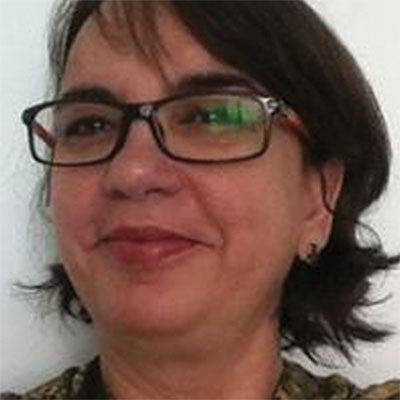
Claudia Berlim de Mello Professor, Universidade Federal de São Paulo
cberlimmello@gmail.comClaudia Mello is a psychologist, neuropsychologist, and professor in the Department of Psychobiology at the Federal University of São Paulo (UNIFESP). Mello is also a master’s degree supervisor in the Program for Education and Health at UNIFESP. She currently works as a researcher and training supervisor with a neurodevelopmental outpatient clinic for children and adolescents with neurodevelopmental disorders. Her research areas are: (a) neuropsychological phenotype on genetic syndromes; (b) development and adaptation of neuropsychological procedures; and (c) assessment and rehabilitation for neurodevelopmental disorders. Her early childhood work has been developed in academic and clinical contexts. These contexts include the training and coordination of multidisciplinary team activities in neuropsychological assessment of young children with neurodevelopmental delay, as well as family and teacher support for cognitive, language and motor stimulation.
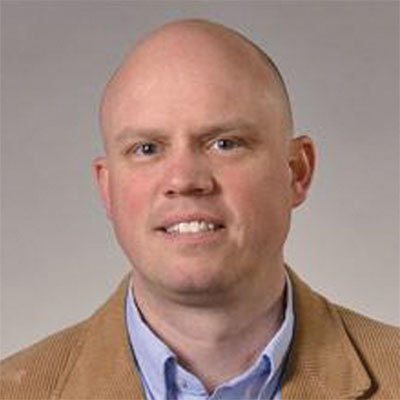
Cody Hollist Associate Professor, University of Nebraska–Lincoln
chollist2@unl.eduCody Hollist is an associate professor at the University of Nebraska–Lincoln and the director of UNL’s Marriage and Family Therapy program. His work is centered on the treatment of children who experience trauma. Most of his work is conducted in Brazil in conjunction with the Federal University of Rio Grande do Sul. Their team has been collecting data in the at-risk community of Porto Alegre for approximately 15 years and is studying child development, family functioning and mental health. Hollist’s clinical and research interests are focused on treating children, within family contexts, who have experienced trauma. While there is existing research on approaches that treat children individually, there is a lack of research that includes the family as part of the child’s treatment. Hollist’s aim is to develop family-based treatment protocols for children who have been traumatized.
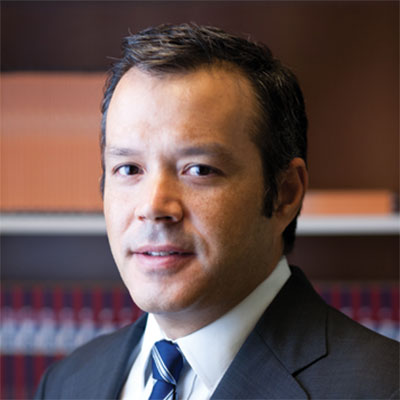
Eduardo de Campos Queiroz CEO, Fundação Maria Cecilia Souto Vidigal
equeiroz@fmcsv.org.brEduardo de Campos Queiroz is the CEO of the Fundação Maria Cecilia Souto Vidigal, a Brazilian family foundation created in 1965 that emphasizes the importance of investing in early childhood development. Queiroz is a board member of United Way Brazil, ESPRO and Outward Bound Brazil. His previous experience includes roles as an advisor to the Secretary of Education of the State of São Paulo and as an executive director of Outward Bound Mexico and Brazil. Earlier in his career, Queiroz worked as an investment banker and a currency trader for approximately 11 years. He has a bachelor’s degree in business administration with a specialization in banking from Getulio Vargas Foundation and a master’s in public administration from the Harvard Kennedy School of Government, where he was a Mason and Lemann Fellow.
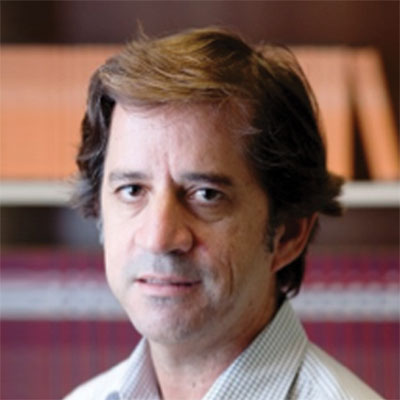
Eduardo Marino Program Manager, Fundação Maria Cecilia Souto Vidigal
eduardo@fmcsv.org.brEduardo Marino is the program manager of the Fundação Maria Cecilia Souto Vidigal. He earned his master’s degree in business administration from the University of São Paulo, Brazil, and holds a bachelor’s in animal science from the State University of São Paulo. He is an evaluator of social programs and has experience in evaluating areas of sustainability, environmental conservation, and early child development programs.
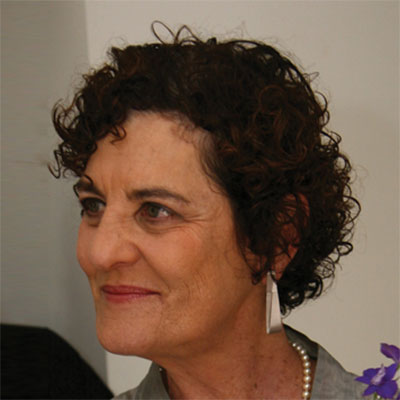
Gisela Wajskop Postdoctoral Fellow & Associate Researcher, Pontifícia Universidade Católica de São Paulo - FORMEP
giselawajskop@gmail.comGisela Wajskop is a postdoctoral fellow and a research associate at the Center for Studies on Professional Development of Teachers at Pontifícia Universidade Católica de São Paulo. She is an international researcher associated with the NOW-Play team at the Ontario Institute for Studies in Education, University of Toronto. Wajskop earned her doctorate from the University of São Paulo, specializing in play-based learning in childhood education and early childhood education professional development. The president of Brazil has recognized her academic career with the Grand Master of National Order of Educational Merit Award in 2002. Wajskop is also a member of Le Comité Scientifique de La Revue Internationale du CRIRES: innover dans la tradition de Vygotsky (Université de Laval, Canadá) and a member of the editorial review board of Revista Patio de Educação Infantil (Brazil). She has been a member of the American Educational Research Association since 2014 and is a counselor at Turma da Touca Associação Recreativa e Social. Wajskop’s research is focused on early childhood education and research-based interventions; play-based learning and kindergarten practice and curriculum; early literacy-based learning; research-based early childhood professional development in daycare centers and kindergarten; and early childhood teacher programs. She has published books, chapters, and refereed journal articles on early childhood, play-based learning, and teacher education development programs.
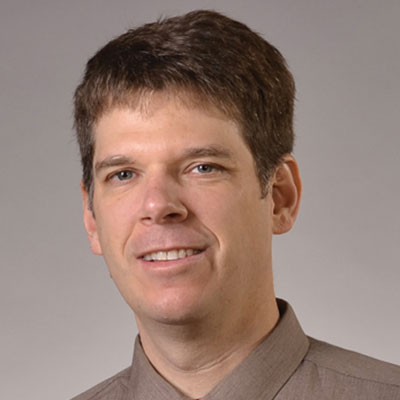
Greg Welch Research Associate Professor, University of Nebraska–Lincoln
gwelch2@unl.eduGreg Welch is a research associate professor at the Nebraska Center for Research on Children, Youth, Families and Schools at the University of Nebraska–Lincoln. He also serves as the director of the Bureau for Education Research, Evaluation and Policy, and the lead evaluator at the Nebraska Academy for Methodology, Analytics and Psychometrics. Welch’s primary research interests focus on evaluation and research methodology, structural equation modeling, and educational policy. He is currently serving as an evaluator on numerous projects, including the Superintendents’ Early Childhood Plan developed by the Buffett Early Childhood Institute at the University of Nebraska. Welch is also co-chair of the Nebraska Early Childhood Data Coalition and a core member of the Nebraska Early Childhood Integrated Data Systems team.
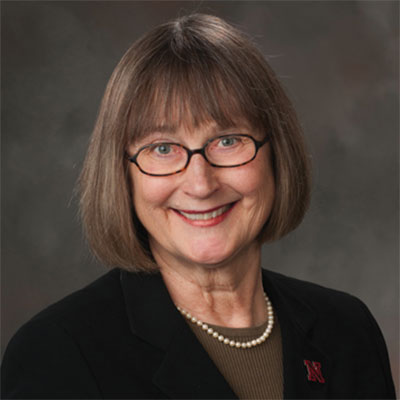
Helen Raikes Willa Cather Professor, University of Nebraska–Lincoln
hraikes2@unl.eduHelen Raikes is a Willa Cather Professor in the Department of Child, Youth, and Family Studies at the University of Nebraska–Lincoln. Raikes is also a professor and associate of the Center on Children, Families and the Law at the University of Nebraska–Lincoln. She is the principal investigator for the five-state Midwest Child Care Research Consortium, which studies child care quality, workforce characteristics, and Quality Rating System interventions. She is also one of several state-level principal investigators in a five-state Quality Intervention in Early Care and Education study. Raikes provides consultation to the Administration for Children and Families, U.S. Department of Health and Human Services, the Early Head Start Research and Evaluation Project, the Bill & Melinda Gates Foundation’s Early Learning Initiative, and the Bounce Learning Network. Prior to her appointment at UNL, Raikes served as an associate at The Gallup Organization, where she directed public opinion and other studies related to children and families. She also served as a Society for Research in Child Development executive policy fellow, where she was project monitor for the Early Head Start study and was awarded the Government Award of Excellence in Evaluations for reports issued in 2002 and 2003.
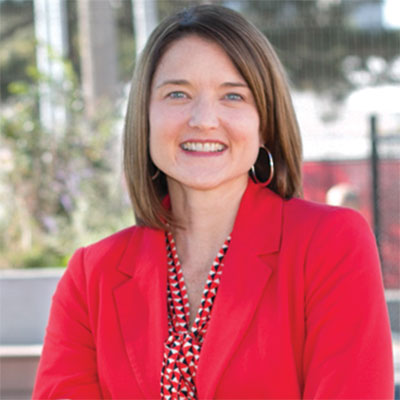
Lisa Knoche Research Associate Professor, University of Nebraska–Lincoln
lknoche2@unl.eduLisa Knoche is a research associate professor at the Nebraska Center for Research on Children, Youth, Families and Schools at the University of Nebraska–Lincoln. She also serves as the director of the center’s Nebraska Early Childhood Research Academy. Knoche is an applied developmental psychologist with expertise in the design, development, and evaluation of early childhood intervention and prevention programs to support healthy development in young children and support family engagement in early learning. Specifically, she has extensive experience in implementing collaborative research programs with educational partners. Knoche is currently investigating the Getting Ready parent engagement intervention in infant/toddler and preschool settings serving at-risk children through two funded projects. She is also exploring early learning practices as they relate to children’s development as part of a national research network.
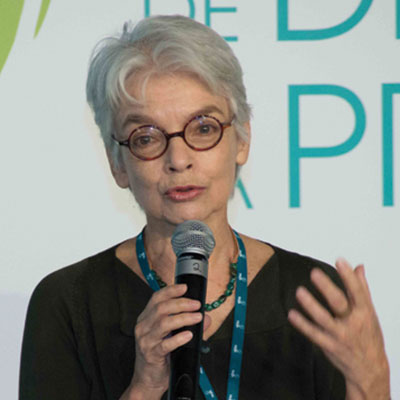
Maria Malta Campos Senior Researcher, Fundação Carlos Chagas
mcampos@fcc.org.brMaria Malta Campos served as a professor at the Catholic University of São Paulo before retiring in 2016. She graduated with a bachelor’s degree in pedagogy before earning her doctorate in sociology from the University of São Paulo in 1983. She has served as a visiting scholar at Stanford University and the University of London, and has served as the president of the National Association of Educational Research from 1995 to 1999. Campos also served as the president of the non-governmental organization, Ação Educativa. Since 2013, she has been working as an advisor at the Municipal Department of Education in São Paulo on a project evaluating public and nonprofit early childhood education centers.
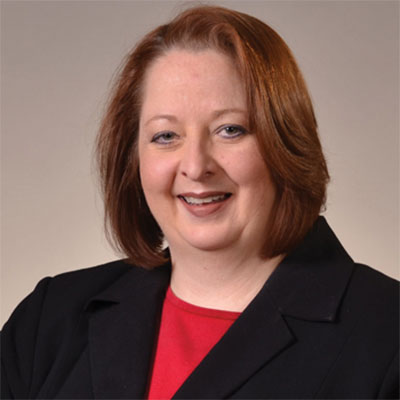
Michelle Howell Smith Research Assistant Professor, University of Nebraska–Lincoln
mhowellsmith@unl.eduMichelle Howell Smith is a research assistant professor in the Nebraska Academy for Methodology, Analytics and Psychometrics, which is housed in the Nebraska Center for Research on Children, Youth, Families and Schools at the University of Nebraska–Lincoln. She specializes in mixed methods research design and currently teaches an introduction to mixed methods research course. Howell Smith’s research interests include instrument development procedures such as grounded theory analysis, cognitive interviews, and factor analysis. She is also interested in educational supports for at-risk students and increasing the number of women and underrepresented students in science, technology, engineering and mathematics. Howell Smith earned her bachelor’s degree in English from the University of Nebraska–Lincoln. She earned her master’s degree in counseling and personnel services from the University of Maryland at College Park and earned her doctorate in educational psychology at the University of Nebraska–Lincoln, specializing in quantitative, qualitative, and psychometric methods. Her dissertation, a mixed methods instrument development study, received the 2013 Outstanding Mixed Methods Dissertation Award from the American Educational Research Association.
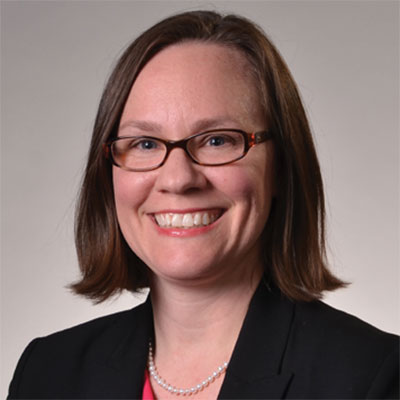
Natalie Williams Assistant Professor, University of Nebraska–Lincoln
nwilliams17@unl.eduNatalie Williams received a joint doctoral degree in clinical and developmental psychology from the University of Missouri and completed a postdoctoral fellowship in behavioral medicine at St. Jude Children’s Research Hospital in Memphis, Tennessee. Williams’ program of research is broadly concerned with promoting physical and psychosocial wellbeing in vulnerable child populations and their families. This work is rooted in a socio-ecological theoretical framework that assumes children’s outcomes are influenced not only by characteristics of individuals but also by features of their home, school, and community environments. Over the past ten years, she has conducted research focusing on injury prevention in toddlers, psychosocial adjustment of children with cancer, the impact of childhood food allergies on parenting practices and caregiver quality of life, and family and child influences on childhood obesity. Williams’ current work is focused on understanding individual and family factors that increase obesity risk in children during the first five years of life. She is also conducting research with families in the context of pediatric medical rehabilitation subsequent to a severe child injury or illness. This research aims to reduce parental distress in order to promote healthy parent-child interaction and facilitate children’s progress in therapy.
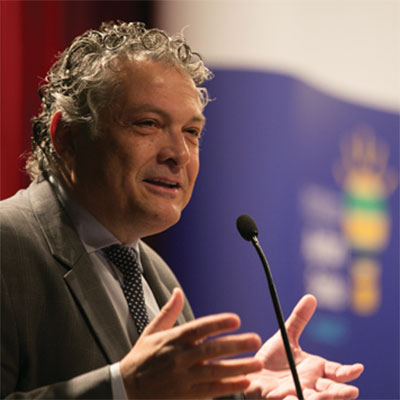
Ricardo Paes de Barros Professor, Insper; Chief-Economist, Instituto Ayrton SennaProfessor, Insper; Chief-Economist, Instituto Ayrton Senna
ricardopb1@insper.edu.brRicardo Paes de Barros earned his doctorate in economics from the University of Chicago in 1987. He served as the director of Social Studies at the Institute of Applied Economic Research in Rio de Janeiro, Brazil. He has also served as an assistant professor at Yale University’s Economic Growth Center and as a member of Yale’s Council for Latin American Studies. Barros twice received the Haralambos Simeonidis Award for articles on poverty and inequality in Brazil. He received the Mario Henrique Simonsen Award in 2000 from the Brazilian Economy Magazine for his article on the public-private wage gap in Brazil. In 2012, Barros was awarded the TWAS-Celso Furtado Prize in Social Sciences. For four years, he worked at the Department of Strategic Affairs for the presidency. In 2015, Barros joined the faculty at Insper. His research is dedicated to identifying major national challenges by evaluating public policies and influencing policy development. Barros’ research is focused on productivity, education, early childhood, youth, demography, immigration, inequality, poverty and the labor market.
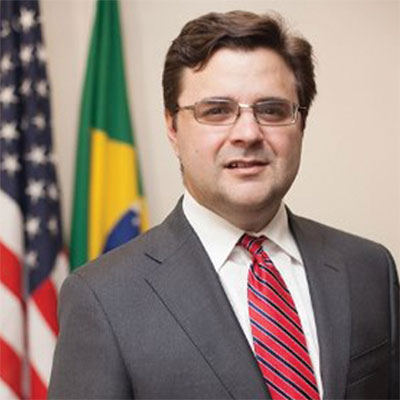
Ricardo Zuniga Consul General, Consulate General of the United States, São Paulo
Ricardo Zuniga is a career foreign service officer who has served as a special assistant to the president and senior director for western hemisphere affairs. Prior to joining the national security staff, Zuniga served as the political counselor at the U.S. Embassy in Brasilia, Brazil, from 2010 to 2012. He previously served as the acting director of the Office of Cuban Affairs in the Bureau of Western Hemisphere Affairs. In this position, he was responsible for the full scope of U.S. relations with Cuba and for coordinating the formulation and implementation of interagency initiatives related to Cuba. Zuniga also served as the political counselor at the U.S. Mission to the Organization of American States (OAS), with responsibility for U.S. political relations with OAS member states. He was the deputy political counselor in Madrid from 2004 to 2007, where he was responsible for fostering counter terrorism cooperation between the U.S. and Spain. Since joining the Foreign Service in 1993, Zuniga has also worked in Mexico, Portugal, and Havana, and in the State Department in Washington, D.C. He has served as the desk officer for Uganda and Tanzania in the Office of East African Affairs, and in the Bureau of Intelligence and Research as a Cuba and Caribbean analyst. Zuniga received his bachelor’s in foreign affairs and Latin American studies from the University of Virginia. He is married and has two daughters.
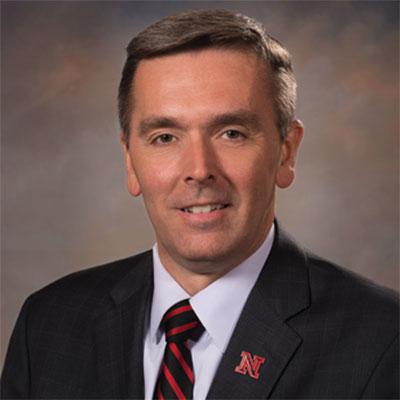
Ronnie Green Chancellor-Elect, University of Nebraska–Lincoln
rgreen@unl.eduRonnie Green was appointed chancellor-elect of the University of Nebraska–Lincoln on April 6, 2016. Since 2010, Green has served as the Harlan Vice Chancellor of the UNL Institute of Agriculture and Natural Resources. Since 2015, Green also has served as UNL’s senior vice chancellor for academic affairs, acting as the institution’s chief academic officer and its responsible authority in the absence of the chancellor. Green received his bachelor’s and master’s degrees in animal science from Virginia Tech University and Colorado State University, respectively. His doctoral program in animal breeding and genetics was completed jointly at the University of Nebraska–Lincoln and the United States Department of Agriculture-Agricultural Research Service’s U.S. Meat Animal Research Center. Green has published 130 refereed publications and abstracts, nine book chapters and 56 invited symposia papers, and has delivered invited presentations in 43 U.S. states and 21 countries. He is a past-president of both the American Society of Animal Science and the National Block and Bridle Club, and has served in a number of leadership positions for the U.S. Beef Improvement Federation, National Cattlemen’s Beef Association, National Pork Board, Federated Animal Science Societies and the National Research Council. He was named a fellow of the American Society of Animal Science in 2014 and, in 2015, a fellow of the American Association for the Advancement of Science, the world’s largest general scientific society.

Soo-Young Hong Associate Professor, University of Nebraska–Lincoln
shong5@unl.eduSoo-Young Hong’s research focuses on early childhood professional development in the areas of science education and preschool inclusion. She is interested in studying effective ways to engage teachers and children in science learning. She is also interested in promoting children’s acceptance of peers with disabilities and their teachers’ understanding of children with different levels of abilities. Hong received her doctorate in child development and family studies from Purdue University.
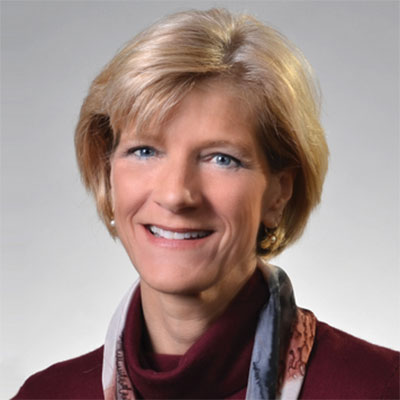
Susan Sheridan George Holmes University Professor, University of Nebraska–Lincoln
ssheridan2@unl.eduSusan M. Sheridan is the director of the Nebraska Center for Research on Children, Youth, Families and Schools, director of the National Center for Research on Rural Education, and a George Holmes University Professor of educational psychology at the University of Nebraska–Lincoln. She graduated from the University of Wisconsin–Madison in 1989 with a doctorate in educational psychology, specializing in school psychology. The American Psychological Association’s Division 16 (school psychology) has recognized her research excellence with both the 1993 Lightner Witmer Award for early career accomplishments and the 2015 Senior Scientist Award for distinguished career scholarship. Sheridan’s research is focused on early childhood education and interventions; parent-teacher relationships; the development of meaningful home-school partnerships; family and parenting interventions; and interventions promoting children’s social skills, social-emotional development, and behavioral competencies. She has published more than 100 books, chapters, and refereed journal articles on early childhood, family engagement, family-school partnerships, school readiness, social-emotional skills and development, and behavioral interventions.
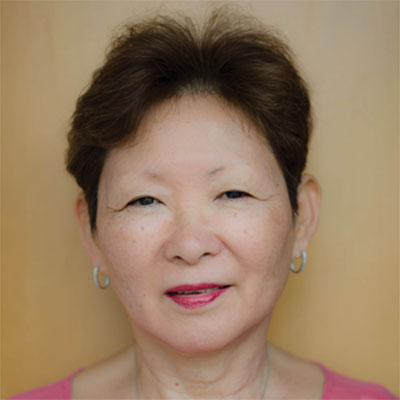
Tizuko Morchida Kishimoto Senior Professor, University of São Paulo
tmkishim@usp.brTizuko Morchida Kishimoto is a full senior professor at the School of Education at the University of São Paulo. She created and coordinated library and pedagogical material for the Education and Toy Museum and chaired its International Cooperation Commission. Kishimoto earned her doctorate in childhood education at São Paulo State University and completed her postdoctoral studies at the Tokyo Gakugei University, Japan, and the Université Paris 13, France. She has investigated children’s play in childhood curriculum by maintaining international projects with Japan, France, Mozambique, and Portugal. She has received prizes from the Ministry of Culture and from public and private organizations for her work related to children’s play. Kishimoto collaborates with the Ministry of Education and with municipal public schools in São Paulo to discuss curriculum, children’s play, quality of education, and teacher education. Her themes of investigation include: curriculum in childhood education; toys and games; teacher education; quality in teacher education involving families; and children and professionals. Kishimoto has 130 publications, including books, chapters, articles, and specialized journals.
Participant Biographies
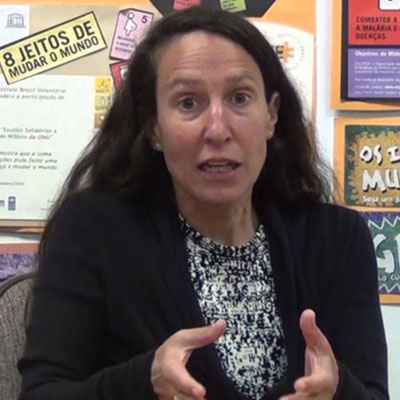
Aimee Verdisco Lead Education Specialist, Inter-American Development Bank
aimeev@iadb.orgAimee Verdisco entered the Inter-American Development Bank in September of 2001. Since October 2015, she has served as a lead specialist in the education division of Brazil’s Inter-American Development Bank. She also leads a regional project on child development indicators (PRIDI) and provides technical assistance to various operations throughout the region. Verdisco has worked on loan operations in nearly all the bank’s member countries and has undertaken analytical work on topics related to education and early childhood development. She is the author of peer-reviewed articles, book chapters, and institutional reports, as well as a book on how improve the performance of regional education systems. Prior to coming to the Inter-American Development Bank, she held positions at Louisiana State University, the United Nations, and a training project financed by the United States Agency for International Development. Verdisco has a doctorate in public policy from the State University of New York at Buffalo, a master’s in international development from the Monterey Institute of International Studies, and a bachelor’s in language from the State University of New York at Binghamton. She was also a Fulbright scholar in Uruguay.

Alessandra Schneider Technical Advisor, Conselho Nacional de Secretários de Saúde
alessandraschneider13@gmail.comAlessandra Schneider is a doctoral student in developmental psychology and education, with an early learning emphasis, at the Ontario Institute for Studies in Education, University of Toronto, Canada. She is a psychologist with a specialization in perinatal health, early childhood development and education, and also holds a master’s degree in psychology. Schneider is a technical advisor at Conselho Nacional de Secretários de Saúde (National Council of Health Secretaries in Brazil), advising on early childhood and health promotion. She co-edits the Portuguese version of the Encyclopedia on Early Childhood Development produced by the Centre of Excellence for Early Childhood Development at the Université de Montréal, Canada. Schneider is a former UNESCO national advisor on early childhood education and development at the UNESCO Brasilia Office, Brazil, and former coordinator of the UNESCO Branch Office in Porto Alegre, Rio Grande do Sul State (RS), Brazil. As coordinator, she provided technical support to the RS State Government for the development of the Primeira Infância Melhor (the Better Early Childhood Development program).
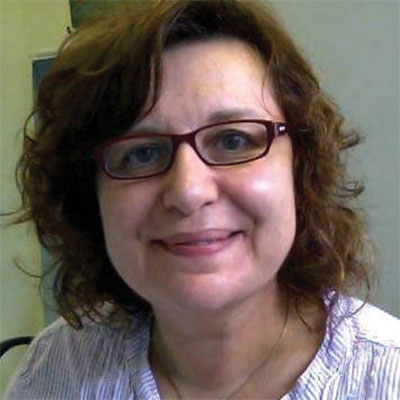
Alicia Matijasevich Manitto Assistant Professor, Universidade de São Paulo
amatija@yahoo.comAlicia Matijasevich Manitto holds degrees in medicine, with a specialization in pediatrics and neonatology. From 1999 to 2000, she completed a master course and doctoral degree in epidemiology at the Federal University of Pelotas, Brazil. In 2007, she held a postdoctoral fellowship at the University of Bristol, U.K. Matijasevich is currently an assistant professor in the Department of Preventive Medicine at the Universidade de São Paulo. For more than ten years, she has been working with cohort studies and coordinates several research projects in Brazil, including the assessment of children’s developmental status. Matijasevich is currently involved in three areas of research: mental health of mothers and their offspring, assessment of cognitive and non-cognitive skills, and inequalities in health and healthcare. Her principal collaborations are with the Federal University of Pelotas, Brazil, and the Universities of Oxford and Bristol, U.K.
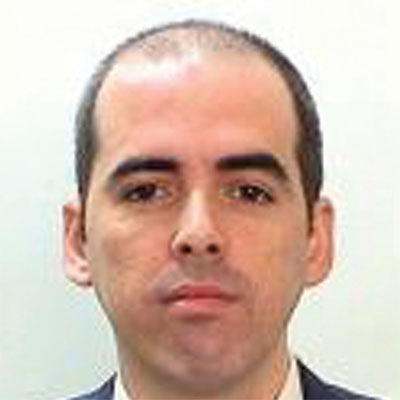
Andre Loureiro Economist - Education Global Practice, The World Bank
aloureiro@worldbank.orgAndre Loureiro earned his doctorate in economics from the University of Edinburgh, United Kingdom, after he completed a bachelor’s and master’s in economics at the Federal University of Ceará, Brazil. After finishing his doctorate in 2013, he started working as an economist in the Education Global Practice of the World Bank (based in Brasilia, Brazil), where he currently works. His main activities are related to the design, preparation, appraisal, and supervision of development lending projects. He also conducts analytical work in education and development economics. Loureiro’s projects and studies include areas such as full-time education, technical education, acceleration programs, early childhood development, and technical support to schools, primarily through impact evaluations with education and socioeconomic outcomes.
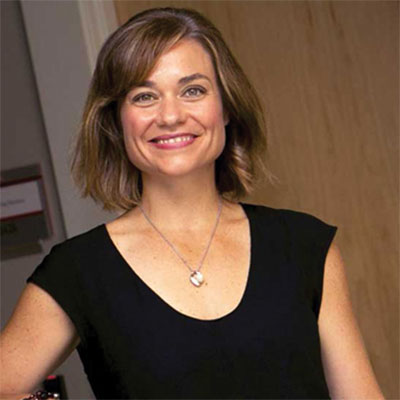
Amanda Witte Project Manager, University of Nebraska–Lincoln
awitte2@unl.eduAmanda Witte’s primary research area is focused on family-school partnerships. For the last 10 years, Witte has been a key team member at the Nebraska Center for Research on Children, Youth, Families and Schools. She has contributed to numerous publications and presentations. Witte has been instrumental in developing and implementing family-school partnership training and facilitating ongoing coaching for research studies. She delivers workshops on family-school partnerships to educators and service providers across North America. Witte has also led teams conducting large-scale educational research in communities across three states. She has collaborated with approximately 50 school districts to create mutually beneficial research partnerships. Witte is currently the principal investigator on a pilot project for family-school partnership intervention training and coaching for distance technology delivery. She earned her doctorate from the University of Nebraska– Lincoln.

Andrea Guida Executive Director, Laboratório de Educação
andrea@labedu.org.brAndrea Guida holds a master’s degree in education in history, politics and society from the Catholic University of São Paulo. Since 1989, she has served as an elementary school teacher and pedagogical supervisor for a private school network, and has led continued professional development programs for teachers in various public school districts. From 1999 to 2011, Guida was a member of the Comunidade Educativa team, working as a teacher-trainer in the Portuguese language and as a pedagogical supervisor for the Escola que Vale program. In this program, she coordinated the internal teacher-trainers course and also co-authored a set of guidelines entitled Referenciais de Formação de Professores. Guida has also taught a post-graduate course at the Escola da Vila Teachers School in São Paulo.
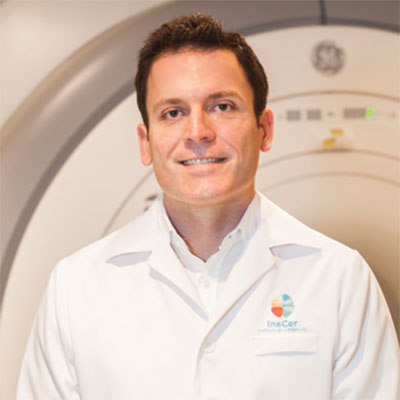
Augusto Buchweitz Associate Professor and Researcher, Pontifícia Universidade Católica do Rio Grande do Sul and InsCer (Brain Institute)
augusto.buchweitz@pucrs.brAugusto Buchweitz is an associate professor at Pontifícia Universidade Católica do Rio Grande do Sul. He is the coordinator of research in language and fMRI at the Brain Institute of Rio Grande do Sul. Buchweitz also serves at the principal investigator for Project ACERTA (Evaluation of Children at Risk for Learning Disorders). Augusto was formerly a postdoctoral research associate at the Center for Cognitive Brain Imaging, Carnegie Mellon University, from 2001 to 2007. He holds a bachelor’s degree in language from the Universidade Federal do Rio Grande do Sul and a doctorate in language from the Universidade Federal de Santa Catarina. His research interests include the study of the brain as related to reading and dyslexia. Buchweitz’s current research is focused on project ACERTA: a longitudinal study of children who, in 2013, enrolled in their first year of elementary school in Porto Alegre, Brazil. This includes approximately 160 children (including groups in Florianópolis and Natal) who are evaluated early in relation to the development of reading and writing skills. A subsample (60 children) is part of a group that was invited to participate in yearly brain scans at the Brain Institute.
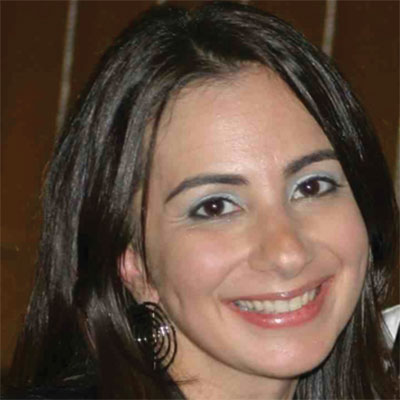
Beatriz Abuchaim Researcher, Fundação Carlos Chagas
biaabuchaim@hotmail.comBeatriz Abuchaim is a psychologist who earned her master’s and doctoral degrees in education from Pontifical Universidad Católica de São Paulo. She was a Fulbright fellow and a visiting researcher from 2011 to 2012 at the University of North Carolina at Chapel Hill under the supervision of Richard Clifford. Abuchaim has worked as a consultant for UNESCO and for Centro de Estudios de Políticas y Prácticas en Educación (Chile) on the project “Background and criteria for developing policies for training and professional development of early childhood teachers in Latin America and Caribbean.” Abuchaim has worked as a researcher at Fundaçao Carlos Chagas since 2010 and as a lecturer at the Centro Universitário Faculdades Metropolitanas Unidas in São Paulo, Brazil. She has regularly published in major scientific journals in Brazil as a result of her involvement in research projects for the past eight years. Abuchaim’s main research interests include the following topics: early childhood education, public policy, assessment, curriculum, and teacher training.
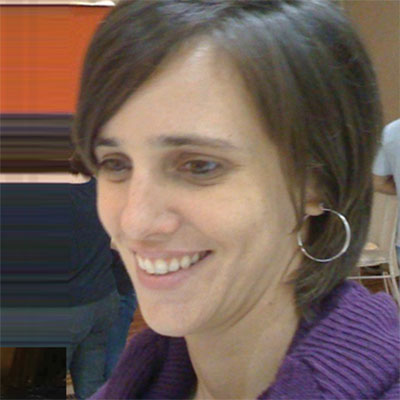
Beatriz Ferraz Education Manager, Fundação Maria Cecilia Souto Vidigal
beatriz@fmcsv.org.brBeatriz Ferraz earned her doctorate from the School of Education at the University of São Paulo and her master’s in education from the Pontifical Catholic University of São Paulo. She also earned a specialization in executive leadership in early childhood development at the Center on the Developing Child at Harvard University. Ferraz acted as program assessor for the Ministry of Education’s PROINFANCIA and PROINFANTIL, which aim to improve the quality of infant education. She has served as the director of educational projects at the Instituto Natura (Nature Institute). She also served as a consultant for the Instituto Superior de Educação Singularidades, Escola de Educação Infantil Bacuri and the Escola de Educadores. For these institutes, Ferraz led projects related to teacher development and education. Ferraz is the manager of infant education for the Fundação Maria Cecilia Souto Vidigal and serves with a group of consultants for the Ministry of Education working on the national common curriculum of infant education. She is also a consultant for São Paulo municipalities in areas including educational evaluation, the history of education, and school leadership.
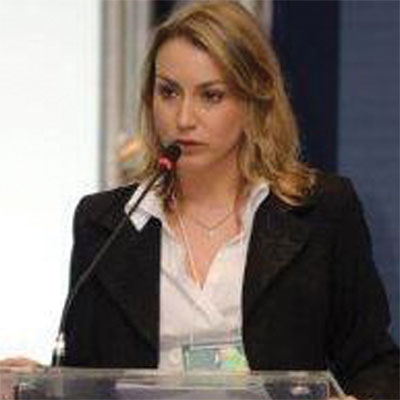
Bruna Seibel Education Manager, Fundação Maria Cecilia Souto Vidigal
brunaseibel@gmail.comCo-coordinator, Programa Florescendo pela Educação, Universidade Federal do Rio Grande do Sul Bruna Seibel is a psychologist and doctoral student at the Universidade Federal do Rio Grande do Sul. Her primary research area is focused on families in vulnerable situations. Alongside Professor Silvia Koller, Seibel coordinates the Brazilian extension program titled, “Florescendo pela Educação” (Flourishing through Education). The program aims to better connect children, youth, and their families with schools in poverty stricken regions of Brazil. The program ultimately aims to address the high dropout rate and high engagement in drug trafficking among children and youth. Given this objective, the program is also involved in interventions with the healthcare system, teachers, families, and community stakeholders. Beginning last year, the program received federal funding for the development of its proposed intervention.
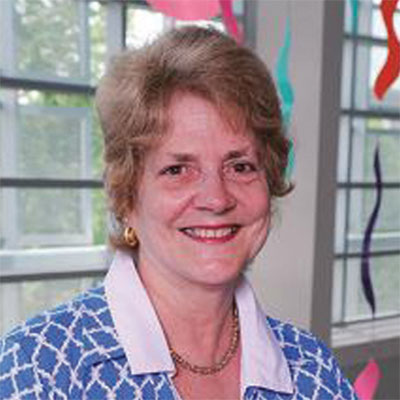
Carolyn Pope Edwards Cather Professor Emeritus, University of Nebraska–Lincoln
cedwards1@unl.eduCarolyn Pope Edwards is a Cather Professor Emeritus at the University of Nebraska–Lincoln with joint appointments in psychology and child, youth, and family studies. She has expertise in international early childhood education and cultural studies of moral and social development. She earned her doctorate in human development from Harvard University and has held visiting appointments in China, Italy, and Norway. Beginning with research in East Africa, she has studied cultural influences on child development and parent-child interactions in countries including Italy, China, Norway, Korea, and Kenya. She was recently part of research projects at the University of Nebraska to strengthen parent-child-teacher relationships and help children get ready for school. She has also contributed to projects aiming to improve mathematics education throughout the state of Nebraska. Edwards is known for lectures and collaborations seeking to improve the quality of children’s early childhood programs worldwide through dialogue with Reggio Emilia and Pistoia, Italy. She is the author and editor of many books, articles, and chapters about early childhood education, multi-cultural education, and the cultural, social, and emotional contexts of infant and child development.
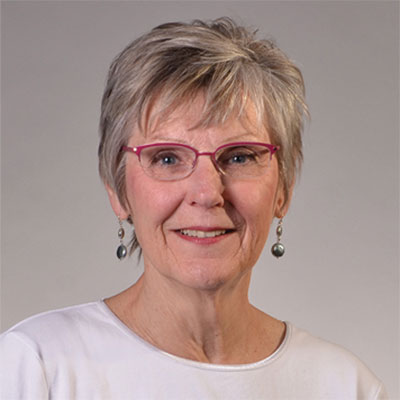
Christine Marvin Professor, University of Nebraska–Lincoln
cmarvin1@unl.eduChristine Marvin is a professor of special education and communication disorders at the University of Nebraska–Lincoln. She teaches graduate courses on home-visiting and infant intervention services, family-centered services, consultation and co-teaching in preschool classrooms for children with disabilities and early childhood special education issues and research. She has also designed many graduate-level courses for distance delivery and serves on the UNL undergraduate Inclusive Early Childhood Education Curricula/Admission Committee. Her past research interests include the study of contextual factors that influence young children’s communication patterns at home and school; the home literacy experiences of preschool children who are at-risk or disabled; and the structure and design of home-visiting and coaching sessions in early childhood programs. Marvin is a nationally certified speech-language pathologist. For 15 years, she provided oral-motor, feeding and language intervention services for infants, toddlers and preschool children and their families while working in the pediatric unit of a large rehabilitation center. Currently, Marvin serves as a member of the University of Nebraska’s Online Worldwide Steering Committee and the Strategic Planning Commission for the University of Nebraska’s Buffett Early Childhood Institute. She has also been a key investigator on the Getting Ready early childhood research project through the Nebraska Center for Research on Children, Youth, Families and Schools.
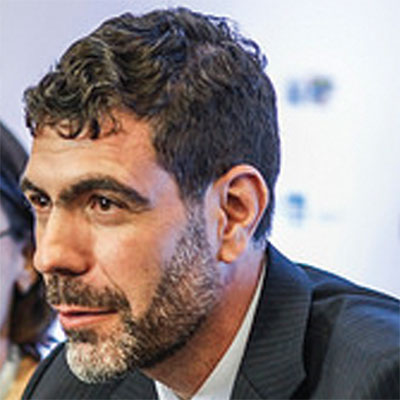
Daniel Santos Professor, University of São Paulo
daniel.ddsantos@gmail.comDaniel Santos earned his doctorate in economics from the University of Chicago in 2008 and is currently a professor at the University of São Paulo. He is now the coordinator of the Laboratory of Social Economics Research and is mainly interested in early childhood development and social and emotional development in educational environments. Other activities include roles as the vice-coordinator of the Neurodevelopment and Mental Health Research Center, and as a senior member of the Science for Early Childhood Center and the scientific committee of Edulab21. His recent research has focused on the development of large-scale assessment tools for early childhood development and social and emotional development, and the evaluation of interventions aimed at improving child-adult attachments.
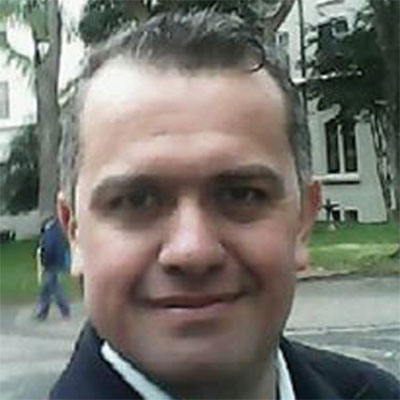
Daniel Silva Doctoral Student, University of São Paulo, School of Nursing
daniel.silva1076@gmail.comDaniel Silva, an expert in public health and child health, is a doctoral student in the School of Nursing at the University of São Paulo, Brazil. He received his master’s of nursing from the Federal University of Paraná in 2012 and his bachelor’s of nursing at the Adventist University of São Paulo in 2002. Silva is a member of the research group on health care and child development promotion at the School of Nursing, University of São Paulo.
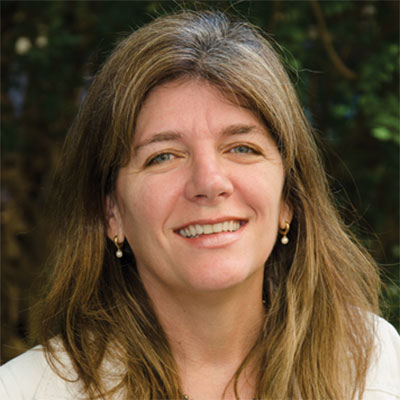
Denise Bandeira Professor, Universidade Federal do Rio Grande do Sul
deniserbandeira@gmail.comDenise Bandeira earned a doctorate in psychology from the University of Rio Grande do Sul in 2000. Bandeira is chief of the Post-Graduation Program in Psychology at UFRGS. She is also a master’s and doctoral advisor and chair of the Study Group of Application and Research on Psychological Assessment. Bandeira was the editor of the journal Psicologia: Reflexão e Crítica / Psychology from 2009 to 2013. Bandeira’s focus is on psychology with an emphasis on construction and validity of tests, scales and other psychological measures, child development, and personality.
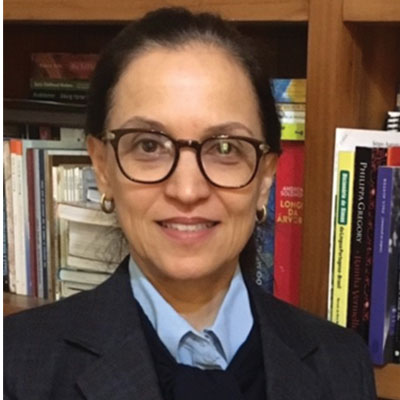
Eliana Bhering Senior Researcher, Fundação Carlos Chagas
ebhering@yahoo.comEliana Bhering has been working in the field of early childhood and early childhood education for almost three decades, with international experience as a university lecturer and researcher. Currently, she works for the Universidade Federal do Rio de Janeiro as a lecturer for the pedagogy course and teaches subjects related to early childhood education. Bhering also works as an early childhood education researcher at Fundação Carlos Chagas. She has regularly published in Brazilian scientific journals and also helped produce documents for early childhood education public systems.
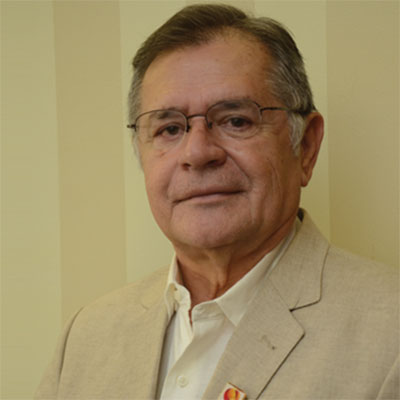
Francisco Mota President, IPREDE-Instituto da Primeira Infância
sulivan.mota@iprede.org.brFrancisco Mota is a doctor, pediatrician, and professor of pediatrics in the School of Medicine at the Federal University of Ceará. He received his master’s in pediatrics at the Federal University of Rio de Janeiro and is the author of several papers published in national and international magazines. While at the Federal University of Ceará, Moto founded an integrated clinic of pediatrics and a neonatal unit. He also founded the first breast milk bank of North and Northeast Brazil. Mota is the founder and former president of the Nucleus of Treatment and Early Intervention that assists 750 children with special needs. He is the former president of SAMEAC, an entity that supports the administration of the Maternity Hospital and the University Hospital of the Federal University of Ceará. Mota is the current president of the Instituto da Primeira Infância (Early Childhood Institute).

Giuliana Chiapin Coordination Team Member, Strategic Relationships and Research Areas, Primeira Infância Melhor
giuliana-chiapin@saude.rs.gov.brGiuliana Chiapin is a psychologist with more than 15 years of experience in early childhood development working with children, families, and communities. Chiapin has built relationships with professionals from various sectors, including private organizations, government, academia, and international organizations. While living in England, she supported families with young children from many countries by conducting family outreach work in nursery schools and children’s centers. Chiapin returned home to Porto Alegre, Brazil, to apply the knowledge and experience she acquired in the U.K. Through her consulting business, Investir Infância (Investing in Early Childhood), Chiapin provides parents and professionals with multidisciplinary strategies to promote early childhood social-emotional development and healthier families and societies. Since 2012, she has served as a UNESCO consultant for Primeira Infância Melhor (PIM), a home visiting program for vulnerable families in Brazil. PIM has inspired and supported the implementation of early years policies and programs across the country. Chiapin establishes and manages PIM networks, trains local teams, advocates for more government investment in early years projects, supports monitoring and evaluation systems, and coordinates research projects.

Guilherme V. Polanczyk Assistant Professor, University of São Paulo Medical School
gvp@usp.brGuilherme Polanczyk completed the adult psychiatry and the child and adolescent psychiatry training programs at Hospital de Clinicas de Porto Alegre, Brazil. He earned his master’s and doctoral degrees at the Universidade Federal do Rio Grande do Sul, Brazil, focused on genetic and epidemiological aspects of ADHD. He worked as a postdoctoral researcher at the MRC SGDP Centre at the Institute of Psychiatry, King’s College London, and at Duke University, focused on the developmental origins and courses of mental disorders through the Dunedin and E-Risk Studies. Currently, he is an assistant professor of child and adolescent psychiatry at the University of São Paulo Medical School (FMUSP), Brazil. He directs the Early Diagnosis and Interventions Program and the Inpatient Unit at the Child & Adolescent Psychiatric Division at Hospital das Clinicas FMUSP, and the Research Center on Neurodevelopment and Mental Health at USP. He is a co-editor of the European Child and Adolescent Psychiatry, and member of the editorial board of the JAACAP. His research interests include etiological mechanisms, early manifestations, and interventions for mental disorders, specifically ADHD and related disorders. Currently, he is the principal investigator and co-principal investigator of three randomized controlled trials. These trials are testing universal and selective preventive interventions and treatment strategies in the context of childhood mental development. His work is funded by National Council for Scientific and Technological Development (CNPq), the São Paulo Research Foundation (FAPESP), Fundação Maria Cecilia Souto Vidigal, Grand Challenges Canada, the Bill & Melinda Gates Foundation, and NARSAD, and was recognized by the Brazilian Psychiatric Association and the AACAP. He has approximately 115 papers published in peer-reviewed journals and 6300 citations resulting in h-index 28.
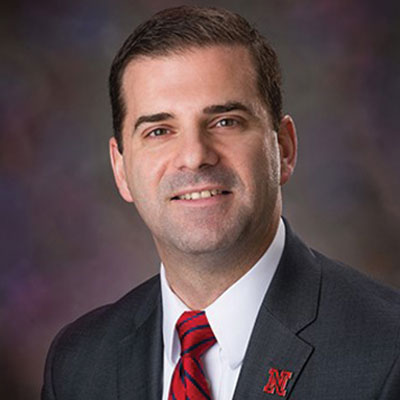
Josh Davis Assistant Vice Chancellor, IANR Office of Global Engagement, University of Nebraska–Lincoln
jdavis@unl.eduJosh Davis was appointed assistant vice chancellor for global engagement in the Institute of Agriculture and Natural Resources (IANR) in January 2015. He leads internationalization efforts across the institute and serves as part of the IANR leadership team. Prior to coming to IANR, Davis served as assistant vice president for global strategy and international initiatives for the University of Nebraska system. In this role, he worked closely with all four NU campuses to provide vision and strategic direction to NU’s global engagement efforts and to advance the university’s key relationships in places like China, Brazil, India, and Turkey. Davis worked for the federal government before coming to Nebraska. He has served in multiple positions at the U.S. Department of State, both domestically and overseas. Davis has also worked in the Office of the Secretary of Defense, the U.S. Senate as a foreign policy advisor, and the Brookings Institution as a legislative fellow. He is a graduate of the University of Akron School of Law and a member of the Ohio Bar Association.
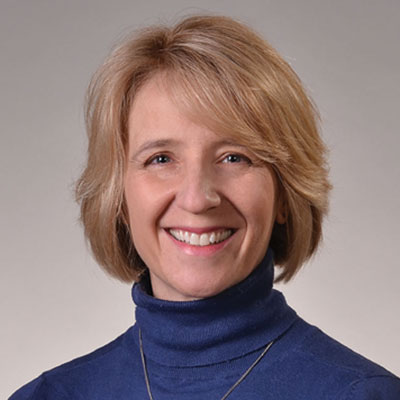
Kathleen Rudasill Associate Professor of Educational Psychology, University of Nebraska–Lincoln
krudasill2@unl.eduKathleen Rudasill is an associate professor of educational psychology at the University of Nebraska– Lincoln. Prior to that, she served as an assistant professor at the University of Louisville. Rudasill earned her doctorate from the University of Virginia in 2006. Her research is focused on understanding how children’s individual differences, particularly in temperament, are related to their academic and social success, and how these relationships are moderated and mediated by classroom processes. One of her primary goals is to gain insight into how specific classroom processes, such as student-teacher interactions, may facilitate or hinder success for students with particular temperamental characteristics. Rudasill is currently conducting a longitudinal study of sleep and self-regulation development in toddlers age two to three. She is also conducting a follow-up study to investigate children’s sleep and self-regulation, as well as the quality of pre-kindergarten classrooms and children’s behavior within classrooms.
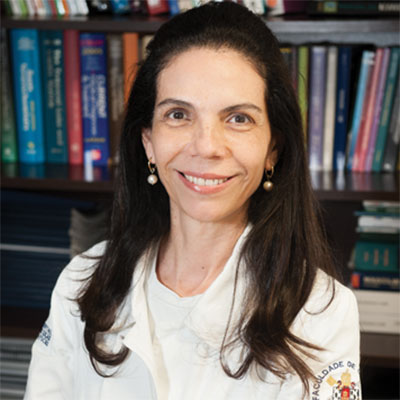
Magda Lahorgue Nunes Professor of Neurology, Pontifícia Universidade Católica do Rio Grande do Sul and InsCer (Brain Institute)
nunes@pucrs.brMagda Lahorgue Nunes is a professor of neurology at the Pontifícia Universidade Católica do Rio Grande do Sul (PUCRS). Nunes obtained her doctor of medicine in 1982 at the PUCRS School of Medicine and did her training in pediatrics and neurology. In 1994, she completed a doctorate in neuroscience at the University of Campinas. Nunes was the recipient of the Bernard J. D’Souza Award of the Child Neurology Society (U.S.) in 1999. She is board certified in pediatrics, neurology, pediatric neurology, and sleep medicine. Nunes is also an active member of many international and Brazilian medical societies and the former president of the Brazilian League Against Epilepsy. She belongs to the editorial board of Journal de Pediatria and was a former member of the editorial board of Clinical Neurophysiology and the Journal of Epilepsy and Clinical Neurophysiology. Nunes has published scientific papers in many journals and book chapters, and has edited three books. She is the former director of the PUCRS graduate program of medicine and health sciences and director for Continuous Education of InsCer (Brain Institute of RS-PUCRS). Nunes has also served as the academic coordinator of the Brain Institute of RS-PUCRS since 2014. Her main areas of interest include neurodevelopment, epilepsy in childhood, sleep ontogenesis and bioelectrogenesis, models for epilepsy, and malnutrition in the developing brain.
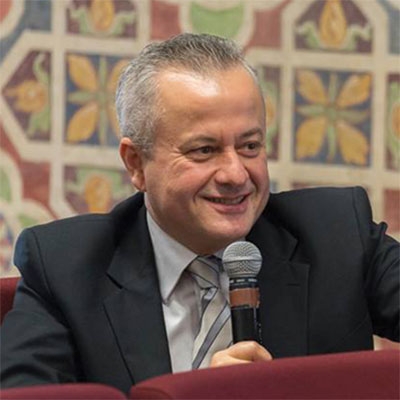
Marco Arruda MD, Director, Glia Institute
arruda@institutoglia.com.brMarco Arruda’s primary research areas include child development, mental health, executive functions, and metacognition. Since 2009, his group has conducted and published numerous population and clinical studies. They are currently conducting an interventional study on executive functions, creativity, resilience, and social networking in a cohort of 600 adolescents living in a small city in Brazil.
Marcos Vinicius Folegatti Head of Department of Biosystems Engineering, Universidade de São Paulo
Marcos Vinicius Folegatti is a senior professor and researcher in the water management area in hydrographic basins at the Universidade de São Paulo on the campus of Piracicaba. He coordinated the “Little Citizen” project involving very poor children in the neighborhood of Piracicaba. The project taught water-related citizenship awareness and included lessons on water conservation, hygiene, and avoiding diseases spread through poor quality water. Folegatti believes the successful management of shared water will only be possible if we prepare children.

Maria de La Ó Ramallo Veríssimo Professor, Universidade de São Paulo
mdlorver@usp.brMaria de La Ó Ramallo Veríssimo is a professor in the School of Nursing at the University of São Paulo. She has taught pediatric nursing and child healthcare for undergraduate and graduate programs at the nursing school for more than 20 years. Veríssimo has participated in public policy projects to improve child care and development in her municipality. She also participated in the creation of the project “Our Children: Windows of Opportunities” that was developed in São Paulo from 2001 to 2003. This project was a partnership with the Primary Health Care Municipality Office and it became part of the key interventions of the Program São Paulo pela Primeiríssima Infância (São Paulo for early childhood) da Fundação Maria Cecília Souto Vidigal. Veríssimo has delivered courses and trainings to health care professionals, social workers and child educators about child development promotion. She has contributed to multiple scientific and technical publications. Veríssimo is now helping master’s and doctoral students with their research projects on topics including: participatory family education for child development promotion; vulnerability markers of infants for dysfunction in their socio-emotional development; and helping families promote the functional development of premature children.
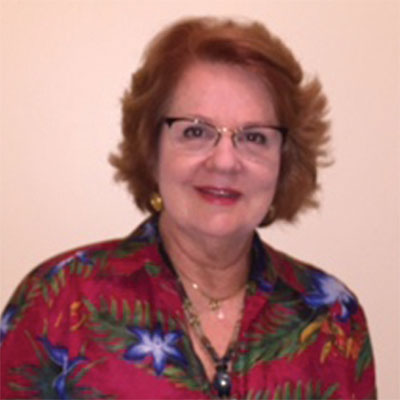
Maria Beatriz Martins Linhares Associate Professor, Ribeirão Preto Medical School, University of São Paulo
linhares@fmrp.usp.brMaria Beatriz Martins Linhares is an associate professor in the Department of Neurosciences and Behavior at Ribeirão Preto Medical School, University of São Paulo, Brazil (FMRP-USP), where she teaches developmental psychology and medical psychology. She is the director of the fellowship program of developmental psychology in the health field and the pediatric psychology service of the Hospital das Clínicas (FMRP-USP). She is a professor in two graduate programs: Mental Health (FMRP-USP) and Psychology (FFCRP-USP), supervising 10 master’s and doctoral students, and postdoctoral fellows. Linhares is a member of pediatric psychology group of ANPEPP and of Núcleo Ciência pela primeira infância (NCPI). Her primary research interests include: risks and protective mechanisms for developmental and behavior disorders in children; bio-behavioral pain reactivity in neonates born preterm; long-term effects of early pain on development; pain assessment in childhood; development of children born preterm; anxiety and depression in mothers of preterm infants; child temperament and behavior; and parenting educational practices in vulnerable populations. For more information see Lates/CNPq and LAPREDES.
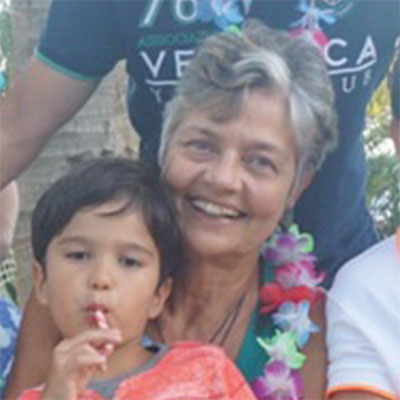
Maria Thereza Marcilio Founder Associate, Avante-Educação e Mobilização Social
mariathereza@avante.org.brMaria Thereza Marcilio is a licensed teacher. She graduated from the Universidade Federal da Bahia and earned a master’s degree in education from the Harvard Graduate School of Education. Marcilio has taught preschool and high school, and served as a professor at the University of Brasília. She has also worked for the federal government with the Ministério da Educação and at the municipal level with the Secretaria da Educação de Salvador. Recently, she has been working at Avante-Educação e Mobilização Social, a non-governmental organization in Salvador-Bahia, and has been part of the executive board since its inception. Marcilio has coordinated many projects related to service training for school personnel and has written and produced educational technologies. She is also involved with advocacy for young children and participates in the Rede Nacional Primeira Infância (National Network for Early Childhood) and in the World Forum Foundation, where she coordinates the Global Leaders for Latin America.
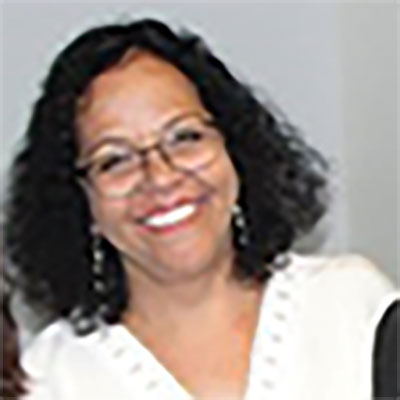
Monica Miranda Professor, Universidade Federal de São Paulo, Universidade Federal de Rio Grande do Norte
mirandambr@yahoo.com.brMonica Miranda has degrees in psychology and neuropsychology. She earned her doctorate in psychobiology from Universidade Federal de São Paulo in 2004. Miranda has experience in cognitive neuropsychology and focuses on the following subjects: early childhood intervention, poverty, cross-cultural adaptation, the development of neuropsychological tests, and cognitive development.
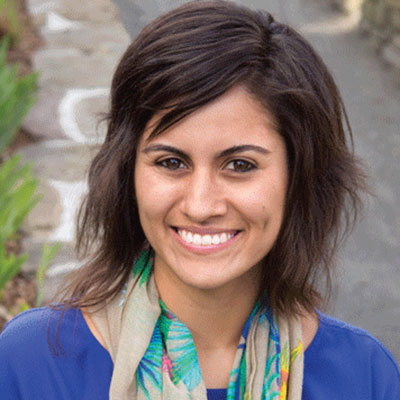
Nicole Paulet Piedra Director of Content, Laboratório de Educação
nicole@labedu.org.brNicole Paulet Piedra obtained her master’s degree in international education policy at the Harvard Graduate School of Education in 2015. Originally from Peru, she is an alumna of the United World Colleges movement. She has previously conducted research for Comunidade Educativa CEDAC, a nonprofit organization that leads large-scale teacher training programs in collaboration with municipal school districts throughout Brazil. She currently serves as a member of the leadership team at Laboratório de Educação, a São Paulo-based education nonprofit dedicated to helping adults who interact with young children on a daily basis, both inside and outside of schools. Piedra is currently responsible for the monitoring and evaluation of Laboratório de Educação’s holistic teacher-training intervention in Casimiro de Abreu, a municipal school district of the state of Rio de Janeiro.
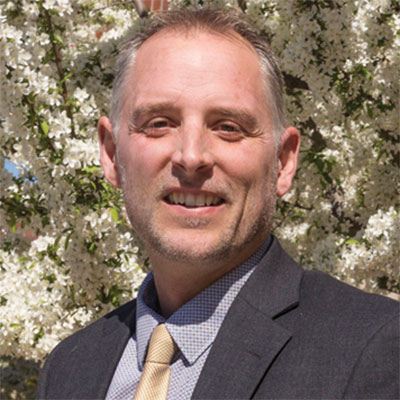
Paul Springer Associate Professor, University of Nebraska–Lincoln
pspringer3@unl.eduPaul Springer is an associate professor in the Marriage and Family Therapy program at the University of Nebraska–Lincoln. His research program surrounds the pressing needs related to addressing mental health disparities locally and globally. This has resulted in the development of a global model to address mental health disparities in the U.S. and developing countries. Sustainable solutions to reducing mental health disparities must make mental health care more accessible and also ensure that it is acceptable to consumers and families by emphasizing culturally sensitive collaborative care practices. These global solutions work within the local cultural context to: a) build community capacity to make a difference by mobilizing existing resources, b) collaborate with local medical providers, and c) determine sustainable ways to increase access to mental health care (including tele-mental health). Springer recently served as co-principal investigator of a federally funded grant that trains clinicians in collaborative healthcare practices to better serve underserved populations through innovative uses of technology, such as videoconferencing. He is currently working on two projects in Brazil that are applying community-based participatory research. One project is focused on addressing high dropout rates and drug trafficking among children and youth in high poverty communities in Porto Alegre. He is also developing a mixed model of tele-therapy in Southern Brazil as a means of offering mental health services for children, youth, couples, and families who are in need.
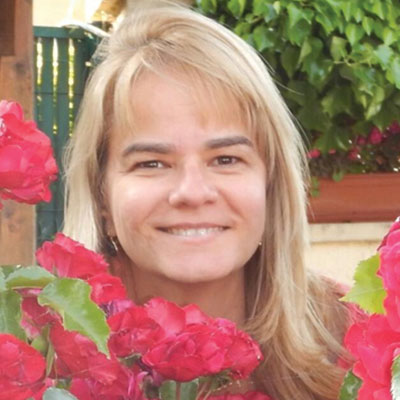
Pompéia Villachan-Lyra Professor and Researcher, Federal Rural University of Pernambuco
pompeialyra@gmail.comPompéia Villachan-Lyra is a psychologist and has a bachelor’s in psychology from the Federal University of Pernambuco. She is also a neuropsychologist, with a master’s and doctoral degrees in cognitive psychology. She earned her doctorate from the University of Utah (U.S.) with a specialization in early childhood. Villachan-Lyra is also a professor in the Department of Education of the Federal Rural University of Pernambuco and the Program of Graduate Studies in Education, Culture and Identity. She is also the coordinator of the Research Center for Neuropsychology, Affection and Early Childhood. Her topics of interest include: professional qualifications in early childhood education; the impact of early experiences on children’s learning, development, and social inclusion; neuropsychology of development; the importance of early affective experiences across the lifespan; the contribution of professionals working in early childhood education; and vulnerability and neurodevelopment in early childhood. Villachan-Lyra is the author of the books “Mother-Child Attachment Relationships: A Dynamic Look, Historical and Relational” and “New Trends in Development Psychology: Theory, Research and Intervention.”
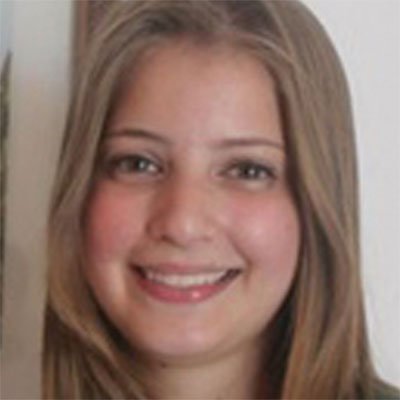
Renata Gomes Graduate Student, Federal University of São Paulo
renatatrefiglio@yahoo.com.brRenata Gomes has a degree in education from the University of Anhanguera and master’s in education and health in childhood and adolescence from the Federal University of São Paulo. She received training as a specialist in educational psychology from the University Mackenzie and training in neuropsychology from the Federal University of São Paulo. Gomes has experience teaching in higher education at the University Mackenzie and completed the Mediator’s Instrumental Enrichment Program. She is currently a researcher at the Paulista Center for Neuropsychology. Gomes serves as a professor supervisor of clinical internships in the Neuropsychological Diagnostic Center and a professor supervisor of monograph at the Institute of Teaching and Research in Psychology and Health. She is a learning specialist at Casa Hunter and an educational psychologist at the Institute of Blind Padre Chico. Gomes is a collaborator researcher for the development of a training program, “Cognitive Development for Professionals in Early Childhood Education: The Response to Intervention.” She is also the coordinator of extension courses in the assessment and intervention of interdisciplinary rehabilitation and emotional education programs. Her primary areas of research include psychology, neuropsychology, and mediated learning.
Sandra Unbehaum Coordinator Department of Educational Research, Carlos Chagas Foundation
sandrau@fcc.org.brSandra Unbehaum joined the Department of Educational Research at the Carlos Chagas Foundation, São Paulo, Brazil, in 1991. Since then, Unbehaum has been a researcher with a group investigating gender, human rights and race relations. The group conducts research with the purpose of analyzing gender relations and ethnic and racial relations in connection with contemporary social practices and in places where socialization occurs—such as families, labor markets, social movements and schools. These studies discuss and are supported by concepts such as gender, race and ethnicity, sexuality, human rights, women´s rights, labor, family, social policies, and affirmative action, which reflect structures of power and how social relations are experienced. Unbehaum currently coordinates a research and intervention project, in partnership with Instituto Unibanco, which seeks to encourage girls’ interest in science, engineering, technology, and mathematics. Unbehaum also coordinates the Equity Program, supported by the Ford Foundation, which aims to promote affirmative action for admission to universities and encourage postgraduate education for underrepresented social groups, such as black and indigenous populations.
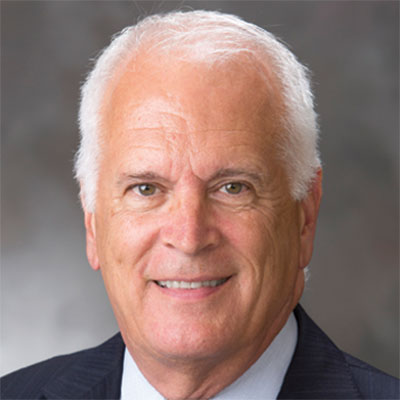
Thomas Farrell Senior Advisor to the Chancellor and Interim Senior International Officer, University of Nebraska–Lincoln
tfarrell2@unl.eduThomas A. Farrell is senior advisor to the chancellor for international affairs and interim senior international officer at the University of Nebraska– Lincoln. From 2009 to 2014, he served as vice provost for global engagement at the University of Nebraska. He was responsible for coordinating the international engagement strategy for the four university campuses in the Nebraska system. From 2002 to 2009, Farrell served in the U.S. Department of State as deputy assistant secretary of state for academic programs in the Bureau of Educational and Cultural Affairs. In that position, he was responsible for higher education exchanges, including Fulbright Programs, and bilateral and multilateral educational relations. He worked at the Institute of International Education (IIE), America’s oldest and largest international education nongovernmental organization, from 1987 to 2002 and served most of that time as vice president for exchange programs and regional services. Prior to joining IIE, Farrell worked as a U.S. Foreign Service officer from 1978 to 1987 in Washington, D.C. In this role, he served as a special assistant to Secretary of State George P. Shultz in the State Department’s Operations Center and in the Secretary’s Secretariat, as well as abroad at the American embassies in Tehran, Iran, and Ottawa, Canada. He worked as a Peace Corps volunteer in India and was later awarded a student Fulbright Fellowship to Pakistan in 1976 while a graduate student at the University of Michigan.
Additional Research Partners Biographies

Dipti Dev Assistant Professor, University of Nebraska–Lincoln
ddev2@unl.eduDipti Dev is an assistant professor in the Department of Child, Youth, and Family Studies at the University of Nebraska–Lincoln. Dev’s research focuses on improving adult caregivers’ feeding practices for preschool children in their care. The goal of this research is to help children develop long-term healthful eating behaviors and prevent childhood obesity. She is also interested in developing low cost and easily implemented strategies using behavioral economics principles to encourage healthier meal choices in preschoolers. Her extension focus at UNL concerns the development and evaluation of programs to educate families and child care providers about responsive, healthful feeding strategies. She would like to use technology to develop and evaluate programming. Dev is also passionate about childhood obesity prevention policy research, including assessing, strengthening and providing support for Head Start, the USDA’s Child and Adult Care Food Program nutrition regulations, and the child care quality rating systems. Dev has experience working on interdisciplinary teams for research in academia and industry. At UNL, she is a part of the Healthy Humans interdisciplinary cluster. Her long-term goal is to foster healthful eating behaviors, weight, and lifestyles in early childhood.

Edmund ‘Ted’ Hamann Professor, University of Nebraska–Lincoln
ehamann2@unl.eduTed Hamann is a professor of teaching, learning and teacher education at the University of Nebraska– Lincoln. Hamann’s primary scholarly interests are in three overlapping areas: 1) how transnational movement of students and families is responded to by schools (particularly movement between the U.S. and Latin America); 2) how educational policies are cultural productions transformed in their conversion to practice (particularly collaboration across tiers of the educational system, like state departments of education working with schools); and 3) how school reform is or is not responsive to various student populations (particularly transnationally mobile students and English language learners). More than 50 of Hamann’s publications, including his graduate students’ theses and dissertations, can be accessed through UNL Digital Commons using the search term “Edmund T. Hamann.”
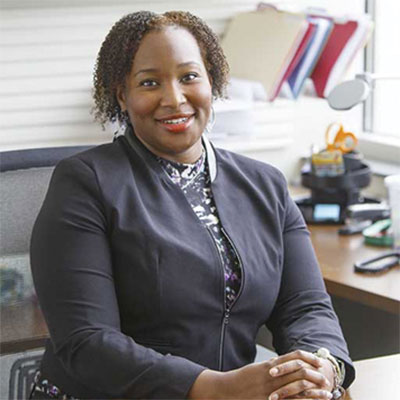
Iheoma Iruka Director of Research and Evaluation, Buffett Early Childhood Institute at the University of Nebraska
iiruka@nebraska.eduIheoma Iruka is the director of research and evaluation at the Buffett Early Childhood Institute at the University of Nebraska. Iruka’s research focuses on determining how early experiences impact poor and ethnic minority children’s learning and development (ages 0-8) and the role of the family and education environments and systems in this process. She is engaged in projects and initiatives focused on how evidence-informed policies, systems, and practices in early education can support the optimal development and experiences of low-income, ethnic minority, and immigrant children. This support may include quality rating and improvement systems, home visiting programs, and high quality preschool programming. Iruka has extensive publications, including a textbook and short-format book geared towards early care and education practitioners working with diverse populations. She serves on numerous national boards and committees, including the Institute of Medicine/National Research Council Committee on Supporting Parents of Young Children (0-8), Head Start’s National Research Conference Executive Committee Member, the Study of Early Head Start Child Care Partnerships, and the Quality Initiatives Research and Evaluation Consortium.
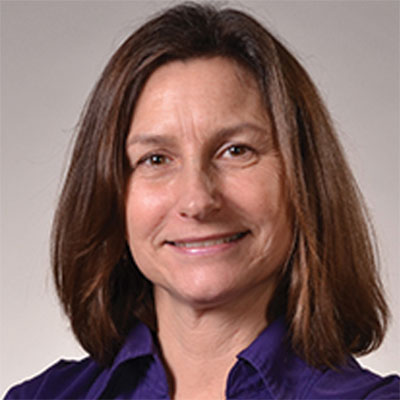
Julia Torquati Professor, University of Nebraska–Lincoln
jtorquati@unl.eduJulia Torquati is a professor in the Department of Child, Youth, and Family Studies. She specializes in child development and early childhood education. Torquati came to the University of Nebraska– Lincoln in 1994 after earning her doctorate in family studies from the University of Arizona. Torquati previously worked as a senior research associate at the University of Miami’s Department of Pediatrics.
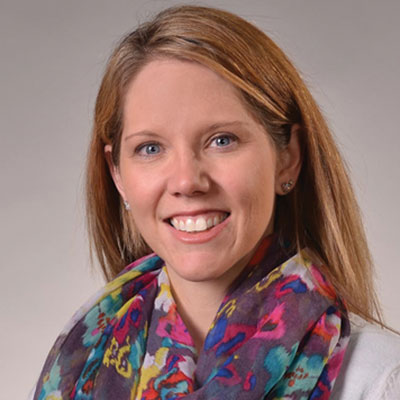
Leslie R. Hawley Research Assistant Professor, University of Nebraska–Lincoln
lhawley2@unl.eduLeslie Hawley’s research expertise is a combination of technical, applied and policy-oriented areas. Her research interests include multilevel modeling, educational measurement, test construction, and test validity. Hawley has published research in journals such as the Journal of Sport Behavior, Journal of Educational Psychology, and Rural Special Education Quarterly, as well as contributed to book chapters related to test validity and methodological considerations for behavioral sciences research. She has presented methodological and policy papers related to assessment and accountability practices at both national and international conferences. She is the chair of the American Educational Research Association Test Validity and Evaluation special interest group and the early career network representative for Division 5 of the American Psychological Association. Phi Delta Kappa International, a global association of education professionals, selected Hawley to join its 2014-2015 Class of Emerging Leaders.

Richard Bischoff Gwendolyn A. Newkirk Professor of Leadership and Department Chair, University of Nebraska–Lincoln
rbischoff2@unl.eduRichard Bischoff is the Gwendolyn A. Newkirk Professor of Leadership in Child, Youth and Family Studies and Department Chair at the University of Nebraska–Lincoln. Bischoff is particularly interested in increasing access to high quality mental health care, especially among vulnerable and underserved populations. He is currently involved in projects that are designed to do that by marshalling local resources to better meet the mental health care needs of communities. These projects also deliver high quality mental health care services through videoconferencing. Bischoff has been a faculty member at the University of Nebraska–Lincoln since 1998. He moved to Nebraska from San Diego, California, where he was teaching at the University of San Diego and working as a marriage and family therapist in a primary care medical clinic. It was there that he developed an interest and expertise in collaborative healthcare and medical family therapy. In Nebraska, he has been able to apply collaborative care principles in rural medical settings, and he’s been able to do this through the innovative use of videoconferencing as a primary medium of treatment delivery. This work has increased access to mental health care for underserved rural residents.
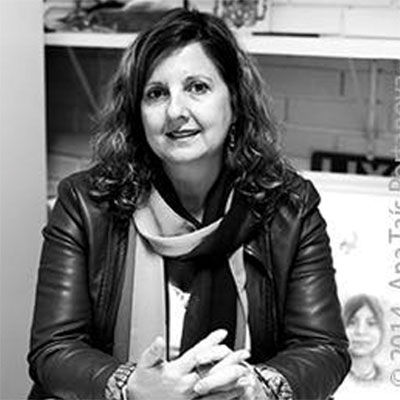
Silvia H. Koller Full Professor, Universidade Federal do Rio Grande do Sul
silviahkoller@gmail.comSilvia H. Koller serves as a full professor and chair of the Center for Psychological Studies of At-Risk Populations in the Department of Psychology at the Universidade Federal do Rio Grande do Sul, Porto Alegre, Brazil. She also serves as a collaborator professor at North West University in Vanderbijlpark, South Africa. Her research focuses primarily on positive and ecological development and applied psychology, children’s rights, resilience, and prosocial moral development. Her papers have been published in several international and Brazilian journals. Koller has received research and intervention grants from the Jacobs Foundation, Kellogg Foundation, World Childhood Foundation (WCF), World Bank, Every Child and various Brazilian agencies. She has lectured at various universities around the world, and her research team has been collaborating with researchers worldwide. Koller participates in several outreach programs. She is also committed to building capacity among youth and fostering young people’s awareness of their human rights, as well as supporting programs for teachers and institution staff related to at-risk youth.
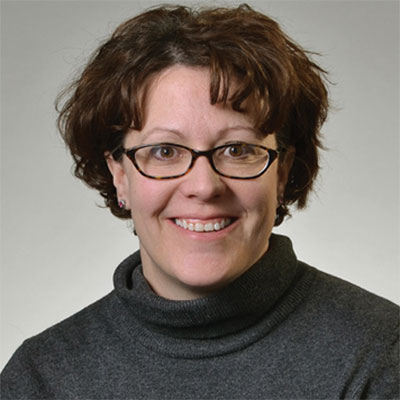
Stephanie Wessels Associate Professor, University of Nebraska–Lincoln
swessels2@unl.eduStephanie Wessels is an associate professor of teaching, learning and teacher education at the University of Nebraska–Lincoln. For the past several years, her coursework, research, and teaching have focused on literacy development for young second language learners and their families. Specifically, she is interested in vocabulary development that enhances and extends current academic practices in the primary grade-level classrooms, as well as family literacy practices. Wessels has conducted bilingual family literacy programs that built on literacy practices of the home and extended those practices into school-based literacy skills. Currently, she is focusing on digital family literacy programs where parents become storytellers using mobile devices.